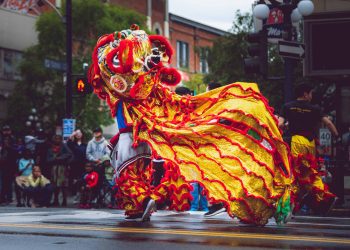The Recording Academy, the organization that oversees the Grammy Awards, probably the most renowned achievement in music worldwide, has come under fire for how Afrobeats were described in an essay that was posted on its website.
Ndombolo, Afroswing, Amapiano, Soukous, and Alté were listed as Afrobeats subgenres in the article.
The Grammys described Afrobeats as “a combination of West African and Black American music that became a global sensation” in a post on Thursday.
The recording academy shared the blog post on its Twitter account and stated: “Afrobeats is a mesmerizing fusion of Black American and West African music that has swiftly become a global cultural phenomenon.”
Several African music and media stakeholders on the micro blogging platform, however, took issue with the description and criticized the post.
The Recording Academy revised the post in an attempt to make amends, writing: “#Afrobeats is a mesmerizing fusion of West African music that has fast become a global musical sensation.
Views on Afrobeats
There have been debates about the Afrobeats genre’s beginnings, development, and whether or not it should serve as a catch-all label for Nigerian pop music.
Burna Boy stated in an interview earlier this month that his music could not be categorized as Afrobeats. He claimed that labelling all African music as “Afrobeats” was unjust to African musicians and unnecessary.
The Grammy-winning musician chose the term “Afrofusion” as a better way to describe his musical genre.
Ayo Shonaiya’s 12-part documentary “Afrobeats: The Backstory,” which recently debuted on Netflix, had devoted one of its parts to the discussions on whether the word “Afrobeats” is required or not before Burna’s remark.
This is due to the fact that a small number of modern artists have also rejected the term “Afrobeats,” which has come to represent the Nigerian music style that is now one of Africa’s most popular music label exported to the world.
Abass Tijani, aka DJ Abass, a Nigerian entertainment consultant and disc jockey based in the UK, responded to the uproar caused by the Recording Academy’s tweet by arguing that Obi Asika’s Journey of the Beats and Shonaiya’s documentary series are the best representations of the development of Afrobeats.
He tweeted:
“This is WHY we must keep telling our own stories. This is how the Recording Academy (Grammys) just defined Afrobeats – a mesmeric blend of West African and Black American music.”
“Afrobeats is pop music out of West Africa. Simple. Has some parts of it been influenced by other sounds – yes – just like other genres.”
He also posted on Instagram:
“I recommend you all to please go and watch AFROBEATS THE BACKSTORY on Netflix and JOURNEY OF THE BEATS on Showmax – and learn more about the history of the genre AFROBEATS.”
“Mesmeric ko, Sme Sme ni,” he wrote on his Instagram handle.
He added that all the other subgenres mentioned in the article “are all stand-alone genres”.
“Nothing could be further from the truth”












